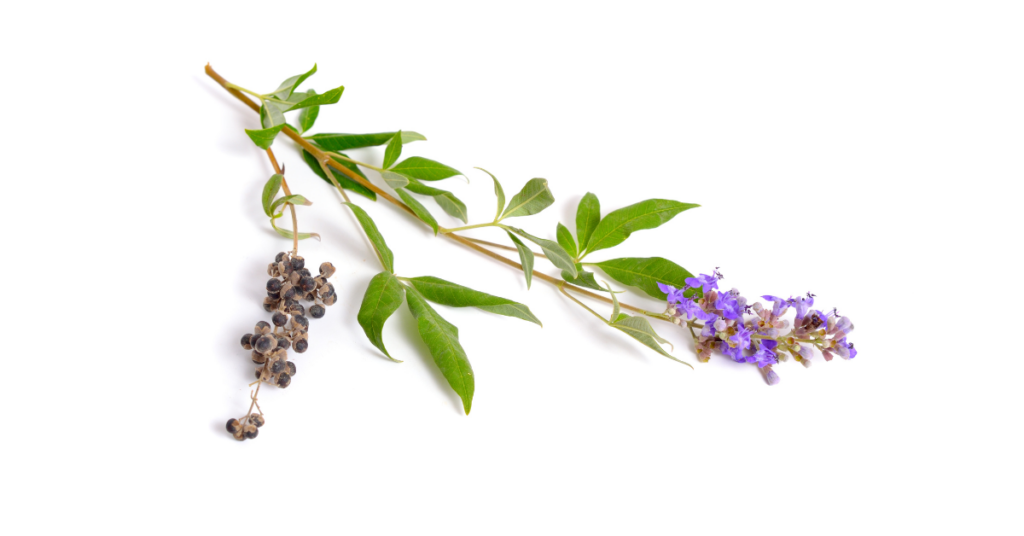Agnus Castus (Vitex Agnus-Castus)
The botanical name and the common name for this herb, ‘monk’s pepper’, suggest that this herb was an anaphrodisiac. In Latin “agnus” means lamb and “castus” means chaste.
In Italy, people sprinkle agnus castus flowers on the floor of the convent or monastery when novices enter the order.
Other names: Chaste tree, monks’ pepper.
Places it grows in
Mediterranean countries and central Asia.
Parts used
Dried fruit.
Uses
Emmenagogue, vulnerary.
It has a strong hormonal effect although it does not contain hormones, and it was used in classical times to treat a number of conditions associated with the female reproductive system.
Female Reproductive System: Studies show that there is an increase in the production of luteinizing hormone and prolactin. This herb regulates periods so heavy periods become less so and scant periods become more regular. It is also used in cased of haemorrhage.
Pre-menstrual syndrome (PMS) / pre-menstrual tension (PMT): This herb regulates oestrogen levels too making it helpful for PMS / PMT and menopause. It will ease breast tenderness, cramping, headaches and the type of acne that is associated with menstruation.
Other uses: Fibroids, inflammation of the womb, helps body to regain regular ovulation and menstruation pattern after coming off the contraceptive pill.
Constituents
Volatile oil, glycosides, flavonoids, bitter principle (castine), and possibly alkaloids.
Contraindications
Rare but some could encounter minor gastrointestinal upsets, mild skin irritations with itching but this is very rare. Do not take this herb if you are pregnant.

